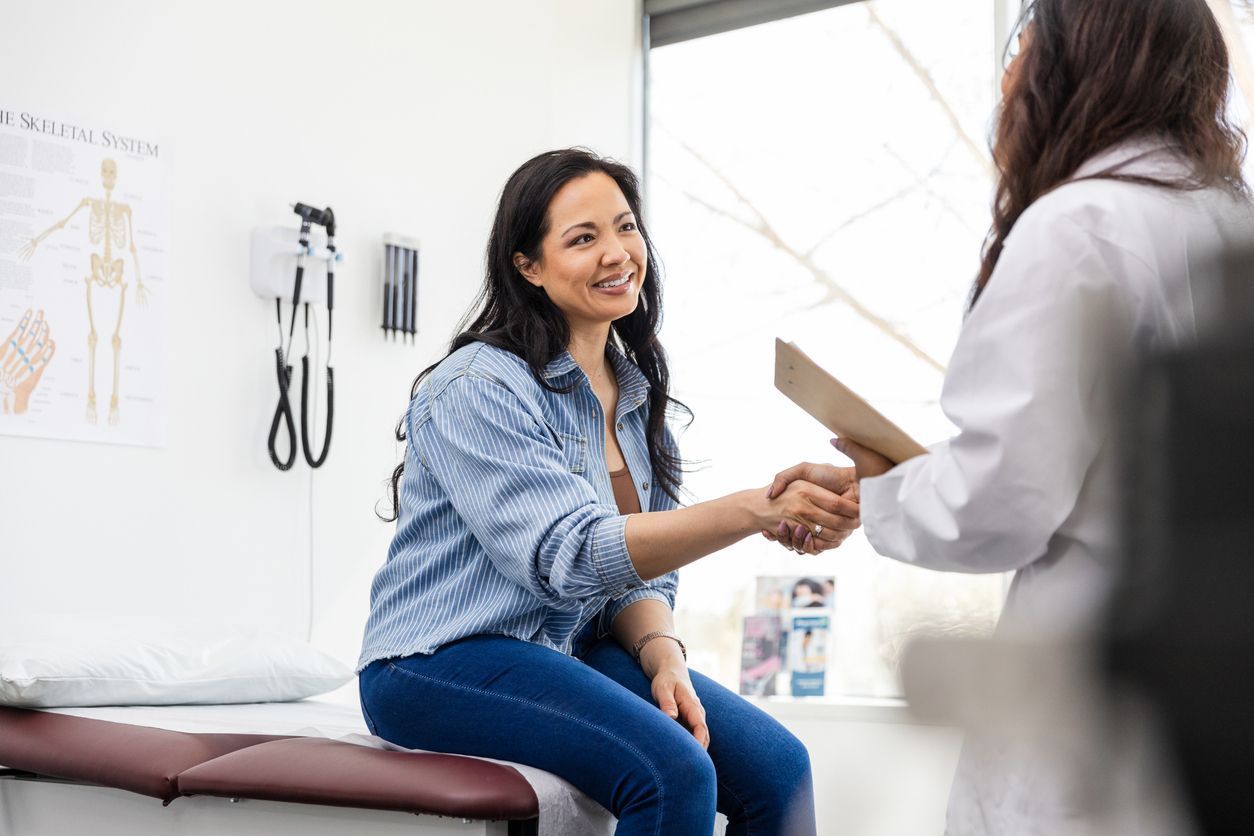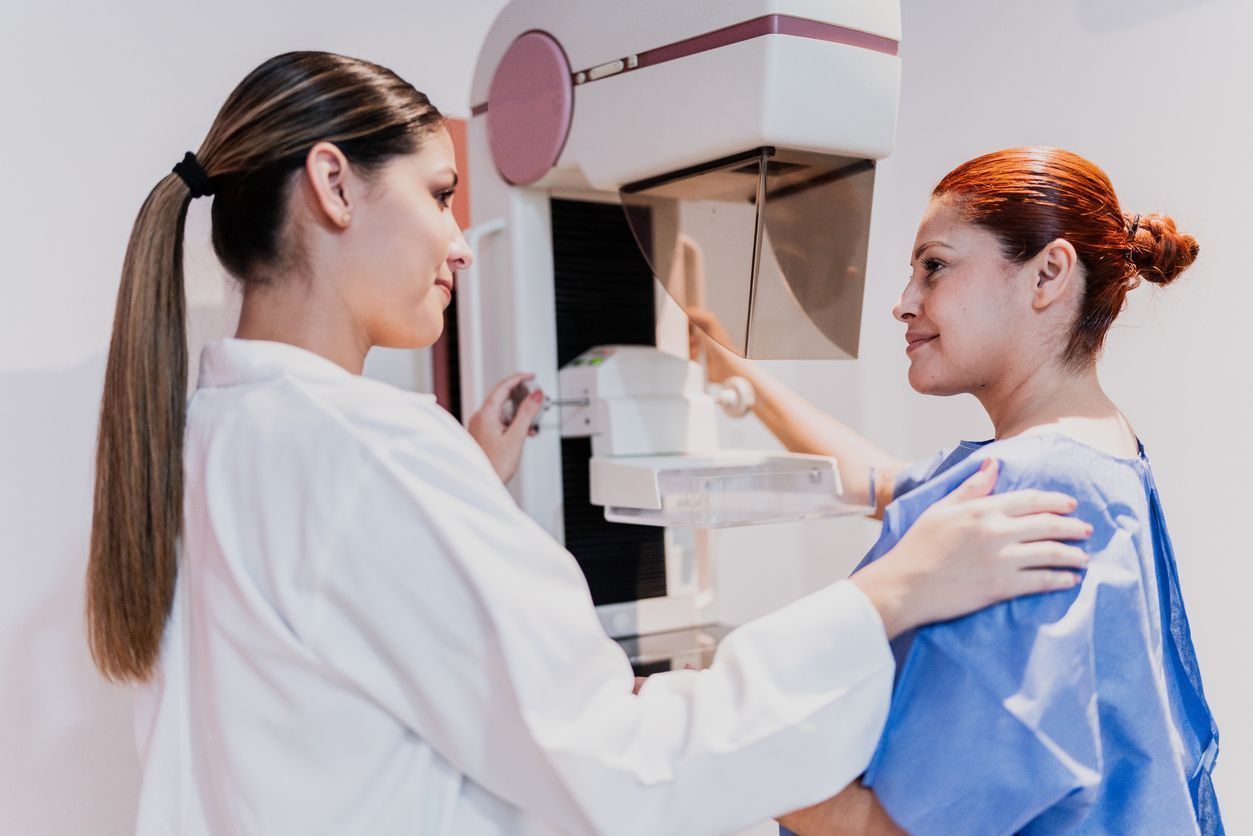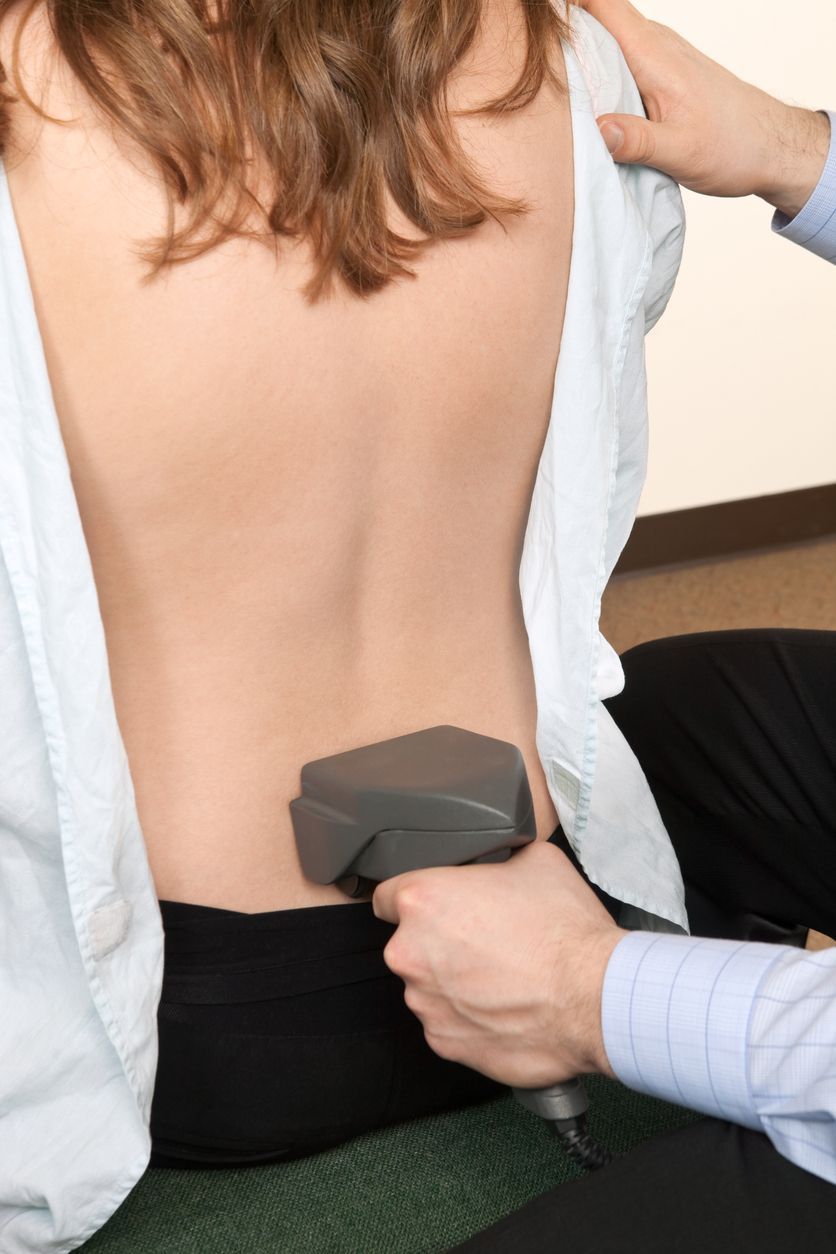Why Should I Make Thermography Part of My Health Maintenance Routine?
Many health conditions show no outward signs or symptoms. The majority of the laboratory tests and body imaging technology available today need an order from a healthcare provider. You can only get this order after there is suspicion of an underlying condition. If you do have suspicions, it's important to know what your options are and be proactive with your health. You should think; "How can I make thermography part of my health maintenance routine?"
X-ray
An
X-ray
measures how electromagnetic waves pass through the body, producing a black-and-white image. X-rays can show some illnesses or injuries, such as pneumonia in the lungs or a fracture in a bone. Having an X-ray done exposes the body to a small amount of radiation. For example, the radiation exposure from having a routine chest X-ray is equivalent to that received from the natural environment over ten days.
An X-ray measures how electromagnetic waves pass through the body, producing a black-and-white image. X-rays can show some illnesses or injuries, such as pneumonia in the lungs or a fracture in a bone. Having an X-ray done exposes the body to a small amount of radiation. For example, the radiation exposure from having a routine chest X-ray is equivalent to that received from the natural environment over ten days.
Computerized Tomography Scan (CT Scan)
A
computerized tomography scan (CT scan)
is a specialized imaging test that passes electromagnetic waves through the body like an X-ray but in varying directions and angles. Computer technology processes the transmission of these waves. This process results in very detailed cross-sectional images of the internal body structures. CT scans help diagnose disease processes, identify tumors, and plan complex surgeries or other body treatments. The radiologist performs a CT scan after the patient drinks or receives an injection of a material called "contrast" that blocks X-rays.
This will appear white on a CT scan and can help highlight specific structures. However, a CT scan exposes the body to more radiation than a simple X-ray and is much more expensive.
A computerized tomography scan (CT scan) is a specialized imaging test that passes electromagnetic waves through the body like an X-ray but in varying directions and angles. Computer technology processes the transmission of these waves. This process results in very detailed cross-sectional images of the internal body structures. CT scans help diagnose disease processes, identify tumors, and plan complex surgeries or other body treatments. The radiologist performs a CT scan after the patient drinks or receives an injection of a material called "contrast" that blocks X-rays.
This will appear white on a CT scan and can help highlight specific structures. However, a CT scan exposes the body to more radiation than a simple X-ray and is much more expensive.
Magnetic Resonance Imaging (MRI)
Magnetic resonance imaging (MRI)
uses very powerful magnets and radiofrequency energy waves to affect the rotation of tiny particles in the body called protons. Sensors record the energy of the protons concerning the magnets and radiofrequency. This results in very detailed, three-dimensional images of the internal body structures. MRI imaging does not expose the body to radiation but is very expensive.
Magnetic resonance imaging (MRI) uses very powerful magnets and radiofrequency energy waves to affect the rotation of tiny particles in the body called protons. Sensors record the energy of the protons concerning the magnets and radiofrequency. This results in very detailed, three-dimensional images of the internal body structures. MRI imaging does not expose the body to radiation but is very expensive.
Mammography (Mammogram)
Mammography
utilizes X-rays to obtain images of breast tissue. Calcium-dense tissue shows up as white on a mammogram. Mammograms can identify breast cancers and other breast conditions and expose the body to radiation. The amount of radiation exposure from a mammogram is equal to that one would receive from the environment over seven weeks.
Mammography utilizes X-rays to obtain images of breast tissue. Calcium-dense tissue shows up as white on a mammogram. Mammograms can identify breast cancers and other breast conditions and expose the body to radiation. The amount of radiation exposure from a mammogram is equal to that one would receive from the environment over seven weeks.
Laboratory testing
Most
laboratory testing
requires a venipuncture to remove a sample of blood, a collected sample of urine, or another sample of body tissue or fluid. The laboratory transports this sample and then performs chemical analysis or microbiological examination on it.
The laboratory compares the test values to the average results received from a population. They identify the values as being low, normal, or high. Many different factors can affect these results, including sex and race. As well as, what medications you are taking, and if you followed any pre-test instructions correctly.
Most laboratory testing requires a venipuncture to remove a sample of blood, a collected sample of urine, or another sample of body tissue or fluid. The laboratory transports this sample and then performs chemical analysis or microbiological examination on it.
The laboratory compares the test values to the average results received from a population. They identify the values as being low, normal, or high. Many different factors can affect these results, including sex and race. As well as, what medications you are taking, and if you followed any pre-test instructions correctly.
Thermography Imaging
Thermography is the non-invasive measurement of an individual's infrared radiation (heat energy) using a specialized camera and complex computer technology to produce a color-rich thermogram. The thermogram is then read by a thermologist- a medical doctor skilled in the interpretation and identification of physiologic changes in the thermogram. There is no radiation exposure during thermographic imaging.
The advantage of thermographic imaging is that a person's unique thermographic "fingerprint" can be evaluated over time to identify subtle shifts that may indicate an underlying inflammation or precursor to developing a more severe health problem. As a result, a thermogram can alert you to the need to consider making healthy changes and provide feedback on lifestyle changes.
If you are interested in learning more about thermography and would like to know the answer to your question; "How to make thermography part of my health maintenance routine?"
contact us
today. We would be happy to partner with you on your journey to your best health.
Thermography is the non-invasive measurement of an individual's infrared radiation (heat energy) using a specialized camera and complex computer technology to produce a color-rich thermogram. The thermogram is then read by a thermologist- a medical doctor skilled in the interpretation and identification of physiologic changes in the thermogram. There is no radiation exposure during thermographic imaging.
The advantage of thermographic imaging is that a person's unique thermographic "fingerprint" can be evaluated over time to identify subtle shifts that may indicate an underlying inflammation or precursor to developing a more severe health problem. As a result, a thermogram can alert you to the need to consider making healthy changes and provide feedback on lifestyle changes.
If you are interested in learning more about thermography and would like to know the answer to your question; "How to make thermography part of my health maintenance routine?" contact us today. We would be happy to partner with you on your journey to your best health.













